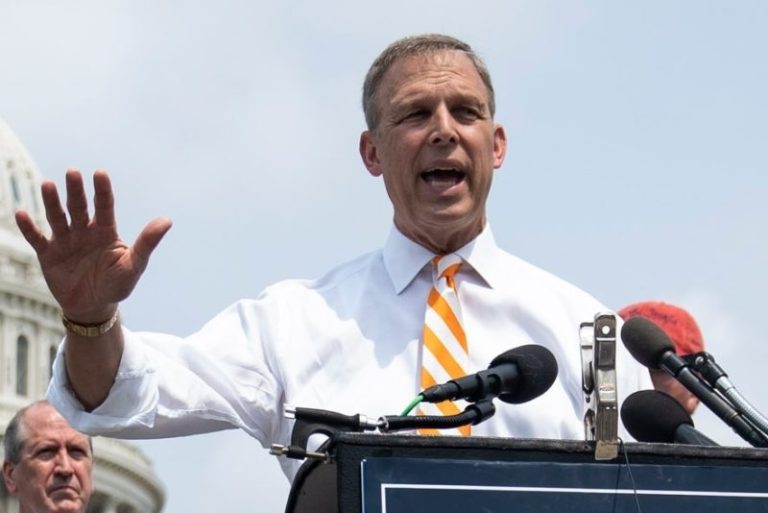A federal judge on Tuesday granted the Justice Department access to nearly 1,700 records recovered from the cellphone of Rep. Scott Perry (R-Pa.) in a long-running legal battle in the criminal investigation of former president Donald Trump’s efforts to overturn the 2020 presidential election.
Chief U.S. District Judge James E. Boasberg of D.C. gave investigators access to 1,659 records and withheld 396 others after a federal appeals court directed him to individually review 2,055 communications from Perry’s phone to decide which were protected by the Constitution’s “speech or debate” clause, which grants members of Congress immunity from criminal investigation when acting in their official capacities.
The FBI seized Perry’s phone in August 2022 under a court order seeking to understand Perry’s involvement in the machinations that were the subject of Trump’s criminal indictment this August for allegedly plotting to prevent President Biden from taking office.
An outline of the contents of Perry’s sensitive discussions with Trump’s legal advisers, aides and others spilled into public view in a quickly withdrawn court filing last month, revealing details of efforts to gain access to secret intelligence about the election, to replace the attorney general with former Justice Department official Jeffrey Clark and to reverse the department’s finding that Biden had been elected fairly. The filing also described Perry’s discussions with Pennsylvania state officials who supported Trump’s fraud allegations, with private individuals claiming expertise in cybersecurity and with attorneys for Trump’s campaign.
Tuesday’s order will determine which messages investigators with special counsel Jack Smith can actually use as potential evidence in any case, pending an expected renewed appeal by Perry, part of legal fight that has tied up the records for more than a year.
Boasberg took over the case after the U.S. Court of Appeals for the District of Columbia Circuit in September overturned an order by his predecessor as chief district court judge, Beryl A. Howell, who had rejected Perry’s claim of congressional immunity for more than 90 percent of the 2,219 records he sought to withhold.
Howell ordered Perry to turn over 2,055 text messages, emails and attachments after concluding that they were conducted with individuals in the executive branch or outside the federal government, as part of informal “fact-finding” not authorized by any formal congressional inquiry or committee.
But a three-judge panel said it rejected both Howell’s finding that informal fact finding never qualifies as official legislative business, and Perry’s proposition that it always does.
U.S. Circuit Judges Neomi Rao and Gregory Katsas, both Trump appointees who served in his administration, and judge Karen LeCraft Henderson, an appointee of George H.W. Bush, ordered Boasberg to re-review Perry’s communications to determine which were “an integral part” of Perry’s consideration of legislation or other matters under the House’s jurisdiction.
Unlike Howell, Boasberg pulled back Perry’s communications seeking information about election fraud before Congress’s Jan. 6, 2021, certification vote, and before its vote on proposed legislation to change election procedures and other communications regarding non-election issues pending congressional action.
But Boasberg agreed with Howell that congressional immunity did not shield Perry’s discussions seeking to provide information to or influence the conduct of others outside the government or in the executive branch regarding election fraud, talks about nonlegislative efforts to combat such fraud, his communications about Vice President Mike Pence’s role or what “occurred during the insurrection at the Capitol on January 6, 2021.”

